#Chris Gosden
Explore tagged Tumblr posts
Video
Immaterial Architecture : Waverley Pavilion by Russell Moreton Via Flickr: russellmoreton.blogspot.com/ Building The Drawing. The drawing as analogue allows more subtle relations, of technique, material and process, to develop between drawing and building. Immaterial Architecture The Illegal Architect Jonathan Hill Oak Tree Oil Paper Plaster Rust Sgratfito Silence Sound Steel Television Weather Frosted Light Index of immaterial architectures TRANSPARENCY : LITERAL AND PHENOMENAL Colin Rowe, Robert Slutzky Interactions of the Abstract Body Josiah McElheny Object Lesson Interactive Abstract Body (Square) The Spatial Body (After Fontana) Tracing Eisenman Stan Allen Indexical Characters FABRIC=MASS+ FORM Alan Chandler The interest in fabric formwork is in its deployment in a building process, which is faster than conventional formwork. Fabric formwork is inherently more sustainable due to the minimising of both concrete and shuttering, and more radically, allows the constructor to intervene in the process of casting even as the cast is taking place. ANTI OBJECT Kengo Kuma We are composed of matter and live in the midst of matter. Our objective should not be to renounce matter, but to search for a form of matter other than objects. What that form is called- ARCHITECTURE, GARDENS< TECHNOLOGY is not important. ReThinking Matereriality The engagement of mind with the material world Elizabeth DeMarrais, Chris Gosden, Colin Renfrew The Affordances of Things Towards a Theory of Material Engagement Aesthetics, Intelligence and Emotions Relationality of Mind and Matter Material Agency Towards a Non-Anthropocentric Approach Carl Knappett, Lambros Malafouris At The Potter's Wheel : An Argument for Material Agency We should replace our view of cognition as residing inside the potter's head, with that of cognition enacted at the potter's wheel. The Neglected Networks of Material Agency : Artefacts, Pictures and Texts Material Agency as Cognitive Scaffolding The Cognitive Life of Things Material Engagement and the Extended Mind Lambros Malafouris, Colin Renfrew Minds, Things and Materiality Michael Wheeler Communities of Things and Objects : A Spatial Perspective Carl Knappett Imagining the Cognitive Life of Things Edwin Hutchins Things and Their Embodied Environments Architectures for Perception Structuring Perception through Material Artifacts Charles Goodwin Leach Pottery, Studio and Museum A Potter's Book Bernard Leach Adventures of the Fire, Vessels Through Time Ceramic Pavilion People make space, and space contains people Ceramic space and life Gordon Baldwin Objects For A Landscape David Whiting Vessels-Spaces that cannot be drawn, rather they need to be experienced. Imagining a Vessel in a Rock on a Beach, 2006,(charcoal on paper) The Architecture of The Ceramic Vessel The use of the vessel in the investigation of our world. The exploration through the dichotomy of the analysis between exterior and interior, of one pot to another and from the message they convey. MATERIAL MATTERS ARCHITECTURE AND MATERIAL PRACTICE Katie Lloyd Thomas PLENUMS : RETHINKING MATTER, GEOMETRY AND SUBJECTIVITY Peg Rawes ARCHITECTURE IN THE AGE OF DIVIDED REPRESENTATION The Question of Creativity in the Shadow of Production Dalibor Vesely The Nature of Communicative Space Creativity in the Shadow of Modern Technology The Rehabilitation of Fragment Towards a Poetics of Architecture The Projective Cast Architecture and its Three Geometries Robin Evans Architects do not produce geometry, they consume it Analysing ARCHITECTURE Simon Unwin Geometries of Being Architecture as Making Frames Space and Structure
#russell moreton#visual fine art#spatial practice#immaterial#architecture#drawing#collage#materials#building#Jonathan Hill#transparency#Colin Rowe#Josiah McElheny#Kengo Kuma#Alan Chandler#ReThinking Materiality#Colin Renfrew#Chris Gosden#Elizabeth DeMarrais#Peg Rawes#Carl Knappett#Lambros Malafouris#Edwin Hutchins#Charles Goodwin#Dalibor Vesely#Michael Wheeler#David Whiting#ceramic pavilion#Gordon Baldwin#Bernard Leach
1 note
·
View note
Text









More stuff back in stock!
Sigil Magic: Fir Writer, Artists, and other Creatives by T. Thorne Coyle
A Witch's Guide to Spellcraft by Althea Sebastiani
Folk Witchcraft: A guide to Lore, Land, and The Familiar Spirit for the Solitary Practitioner by Roger J Horne
Memento Mori: A Collection of Magickal and Mythological Perspectives on Death, Dying, Mortality & Beyond
Sigil Magic: Fir Writer, Artists, and other Creatives by T. Thorne Coyle
A Witch's Guide to Spellcraft by Althea Sebastiani
Folk Witchcraft: A guide to Lore, Land, and The Familiar Spirit for the Solitary Practitioner by Roger J Horne
Memento Mori: A Collection of Magickal and Mythological Perspectives on Death, Dying, Mortality & Beyond
Magical House Protection: The Archeology of Counter-Witchcraft by Brian Hoggard
Weird Walk Zines and the new Weird Walk books!
By Rust of Nail and Prick of Thorn-The Theory and Practice of Effective Home Warding by Althea Sebastiani
Curses, Hexes, & Crossings: A Magician's Guide to Execration Magic by S Connolly
Cloven Country: The Devil and the English Landscape by Jeremy Harte
Magic: A History Alchemy to Witchcraft, from the Ice Age to the Present by Chris Gosden
Pagan Book of the Dead by Claude: Ancestral Visions of the Afterlife and Other Worlds by Claude Lacouteux
#witch shop#book store#pagan books#witchcraft books#traditional witchcraft#animistic witchcraft#animism#folk witchcraft#folk magic#home protections#wards#warding
141 notes
·
View notes
Text
9 Fandom Peeps to Get to Know Better
thanks for tagging me @voidcat-senket :D
3 Ships I Like: fox/quinlan, gideon/harrow, house/wilson
First Ship Ever: lowk i think it was hiccstrid ........... definitely the first ship i wrote for during The Dark Days (when i was on wattpad lol). love those guys
Last Song You Heard: technically 'wayfarin' stranger' because i was in a choir rehearsal an hour ago, but the last song i Listened to was 'something in the way she moves' by james taylor whom i love forever and ever and ever and ever and
Favorite Childhood Book: i was WILDLY obsessed with beatrix potter. like listen-to-the-audiobook-cds-every-night + being able to recite most of the books from heart with the inflections of the narrators, kind of obssessed lolol (/hj) . in retrospect i really should've been diagnosed with autism sooner /j . of those tho i think the ones i remember listening to the most were the tale of little pig robinson, the tale of pigling bland, and the tale of mr tod
Currently Reading: looks nervously at the book i havent read for a fortnight and then at my huge to read shelf . currently i'm reading the history of magic: from alchemy to witchcraft, from the ice-age to the present by chris gosden! it's a history/anthropology book about the intersections between magic + science + religion in different world cultures across time and i've kind of been in the process of reading it for . four years. i have been reading this book longer than i've been transgender which is a really wild thing when i think about it ..... i should finish that tbh
Currently Watching: House MD :D i love house im so so normal about house md [<<<lying]
Currently Consuming: actually not consuming anything right now BUT i had a very very very good quiche earlier
Currently Craving: ack i have to think about My Body And The Feelings Within now .... hmm ........ yoghurt i think .... i love yoghurt ..... it is SO bad for me
I tag…
@hastalavistabyebye @lttrsfrmlnrrgby @whiskygoldwings @puppymons @corpsecowboy @pyrrhawakeisms @larcenistarsonist @sta-ccat-o @stardustloki
16 notes
·
View notes
Text

Image Text: "The practices and philosophy of magic come from a sense of kinship with other living things, the landscape and the heavens. through magic we can explore mutuality: how we are joined to the rest of the universe and the manner in which we can affect things around us." - Magic: A History by Chris Gosden.
#writeblr#writeblr community#writblr#writers of tumblr#writers on tumblr#original fiction#fantasy#writing community#quote#quotes#book quotes#magic#occult#magick#witches#witchcraft#witch aesthetic#witchblr#dark academia#occultism#philosophy#philosophy quotes#philosophy quote#worldbuilding#magic system#speculative fiction#fantasy world#bookblr#books and reading#shamanism
20 notes
·
View notes
Text

-Magic, A History: from Alchemy to Witchcraft, from the Ice Age to the Present
By Chris Gosden
3 notes
·
View notes
Text
actually while i'm recommending books, read chris gosden's magic: a history. it's about magic as the way humans participate with the universe. i think it pairs beautifully with braiding sweetgrass as a way to change the way you'll view and interact with the world.
3 notes
·
View notes
Note
Hello✨️ I would like to start in the witchcraft, research, knowing etc. We had long ago, but I move away from it by turns of life. Now I have realized that it is more about a need, something that my spirit calls, although I still in a process, I want to tilt the balance to this side more than to modern and harmful rationality. I would like to please, I will teach me I recommend that, start reading, history history, tools for this study and practice.
Thanks
Ok friend this ask is a little difficult to understand due to the wording (or perhaps it's cuz I'm hopped up on cold meds currently and i just got back from a long day of walking outside). But it sounds like you're asking for some resources to study the history of witchcraft?
I have started reading the book "Magic: A History" by Chris Gosden and he takes a very history-focus approach to it and doesn't give a "high and mighty" vibe like some other authors do. That might be a good place to start because he goes over magic from the dawn of humanity basically.
Other than that, Wikipedia is a good place to start learning about a topic. It will give you a good summary (most of the time) and the pages are riddled with citations and links to where they get their info.
Ronald Hutton is also a great resource for reading, though there are a few videos of his lectures. As are Dr. Justin Sledge of Esoterica and Dr. Angela Puca of Angela's Symposium if you prefer video format.
I hope this helps!! Let me know if I misunderstood the ask and I'll redo the answer <3
12 notes
·
View notes
Text
Finally got that Chris Gosden audiobook and I've been really enjoying it. Very interesting and strangely affirming at times.
6 notes
·
View notes
Text
Thank you for the tag @twinkodium <3
last song: Casual by Chappell Roan :D
last movie: god, i'm not sure. i don't really watch movies tbh 😅
last TV show: Supernatural S1! i'm just over halfway through my rewatch of it and i really need to finish it
last book: The Mask Falling by Samantha Shannon, book #4 in The Bone Season series and omfg I Am Obsessed!!!! (currently reading The History of Magic by Chris Gosden)
sweet/savory/spicy: drinks? sweet. food? savoury, also preferably spicy at the same time (i fucking hate bland food) (hold on, am i meant to interpret this question another way...?)
relationship status: 🤷
last thing i looked up: byze twitch clips (i was looking for a particular video lmfao)
current obsession: recipes & funny gaming videos & that's about it - i'm really struggling at the moment so not a lot of brain cells to obsess with
last wiki article i read: list of my hero academia episodes because i was working on a separate list
last picture on my camera roll: a selfie of myself that i will not be sharing lmfao
most used reaction: 💛
--
not gonna tag anyone but feel free to do this <3
1 note
·
View note
Note
hi quill! how are you? would you like to answer 3 6 10 and 20 for the book ask game?
Hi, Pippin!! I'm doing fine, working on some projects I was really excited to get to. What about you?
3. What were your top five books of the year?
In the order in which I read them:
The name of the rose by Umberto Eco
One of the books ever, possibly my favorite that I read this year. I started it years ago and couldn't get past the first pages, but I fell in love with it this time around.
The history of magic by Chris Gosden
Not so much An Exhaustive History of Magic as an exploration of the role of magic in different societies and time periods. I haven't stopped thinking about it since I finished it.
Underland: A Deep Time journey by Robert Macfarlane
Ough. Each chapter follows a journey underground, from the catacombs of Paris to Greenland's ice. Very haunting and thought-provoking.
Mabinogion, translated by Victoria Cirlot
I had to go on a journey to borrow this book, but it was definitely worth it. Incredible stories and, while I can't judge the translation, the notes were very good. Also!! Gwalchmei!!!
A feast of creatures: Anglo-Saxon riddle-songs edited and translated by Craig Williamson
I had so much fun with this one. It is a translation and study on the riddles from the Exeter Book, including possible answers. Loved the analysis on riddles, and I had a great time sharing and trying to solve the riddles themselves.
Honorary mention goes to Magic in the Middle Ages by Richard Kieckhefer. I couldn't finish it (I had to give it back to the library), but reading about the clerical necromantic underworld is always fun.
6. Was there anything you meant to read, but never got to?
Yeah, I meant to read The mediaeval Islamic underworld by C. E. Bosworth, but I was in the middle of exams and I could't focus on it as I would have liked :(
10. What was your favorite new release of the year?
I only read one book published this year, apparently? It was The tusks of extinction by Ray Nayler and I didn't love it but it was good.
20. What was your most anticipated release? Did it meet your expectations?
Cheating a little bit with La primera calle de la soledad (The first street of loneliness) by Gerardo Horacio Porcayo, which wasn't a release but a reprinting. It is described in the cover as "the novel that inaugurated cyberpunk in Latin America" and I was so excited to read it but it turned out to be. Not Good.
#asks#thank you!!!#may your winter be full of warm foods and beverages#also sorry for taking so long to answer i saved this to my drafts and then. forgot about it
1 note
·
View note
Text
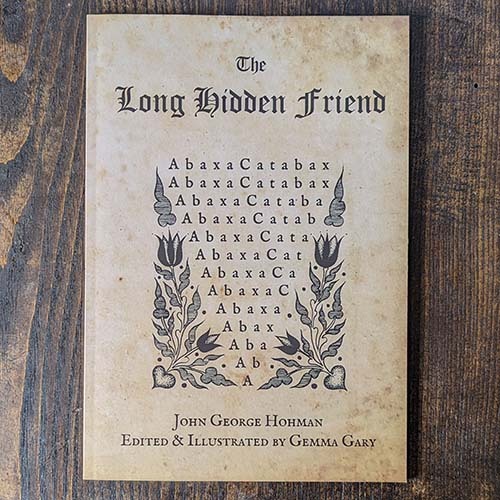
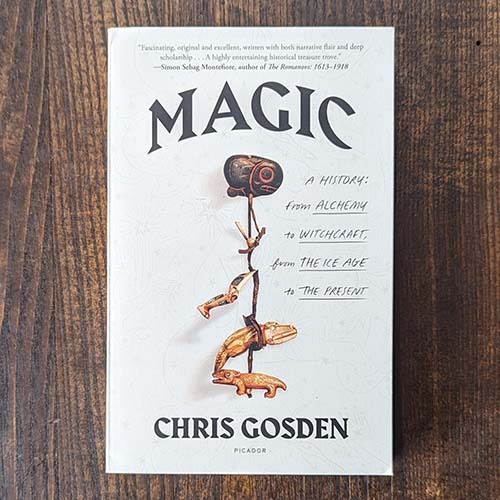
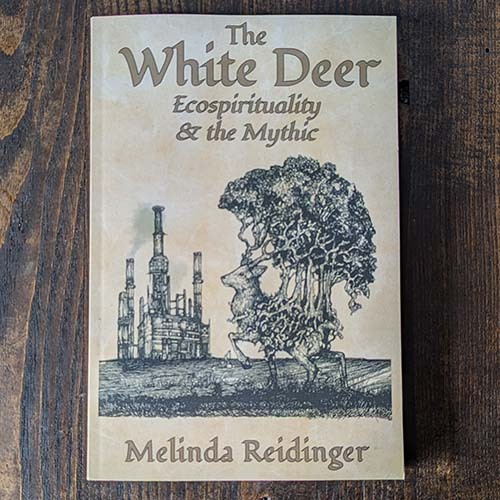
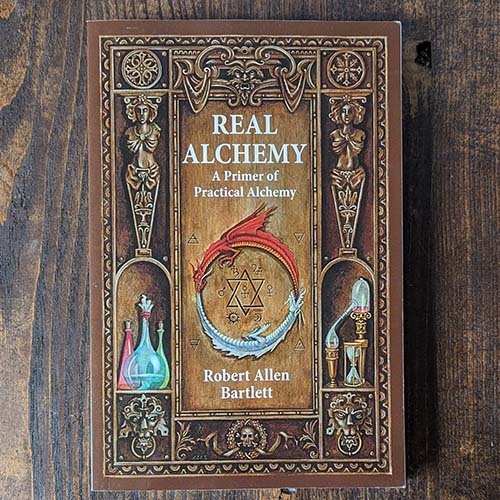


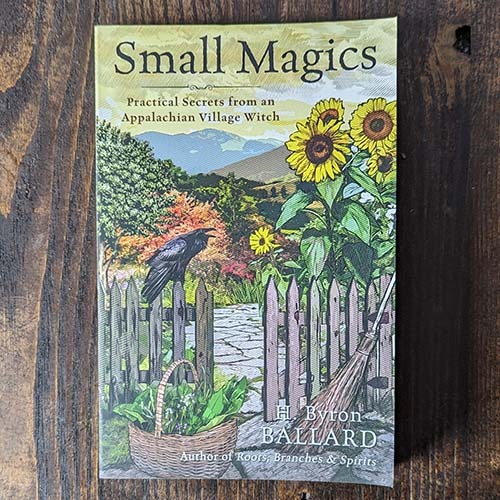

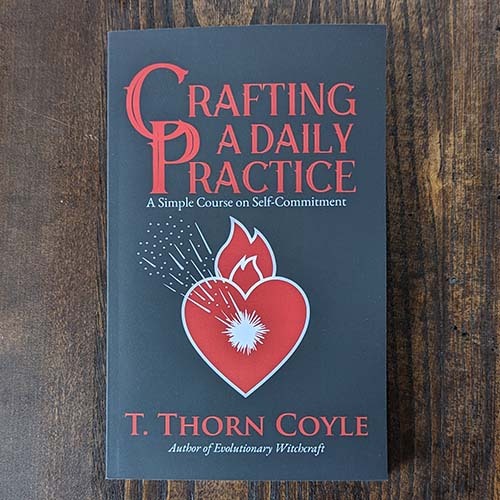

New in the Spiral House Shop!
September 29, 2023
The Long Hidden Friend by John George Hohman Edited and Illustrated by Gemma Gary
Magic: A History: From Alchemy to Witchcraft, from the Ice Age to the Present by Chris Gosden
The White Deer: Ecospirituality and the Mythic by Melinda Reidinger
Real Alchemy: A Primer of Practical Alchemy by Robert Allen Bartlet
Visual Alchemy: A Witch's Guide to Sigils, Art, and Magic by Laura Tempest Zakroff
How to Deal: Tarot for Everyday Life by Sami Main
Small Magics: Practical Secrets from am Appalachian Village Witch by H Byron Ballard
The Seed & Sickle Oracle Deck by Fez Inkwright
Crafting a Daily Practice: A Simple Course on Self-Commitment by T Thorne Coyle
The Gorgon's Guide To Magical Resistance edited by Laura Tempest Zakroff
#laura tempest zakroff#gemma gary#traditional witchcraft#appalachian witch#small magics#witchblr#tarot#alchemy#real alchemy#history of magic#white deer#witch shop#witch books#seed and sickle
229 notes
·
View notes
Note
21+ semi-experimental rp, not fandom specific*, exploring the notion of spirituality as a mode of relating to existence and what it means to relate to a transcendent being (building off Chris Gosden's definition of religion). It would, then, be more conversational in nature. Overall, I would call it a collaborative, post-modern art project using interaction as the medium and existentialism as the mode.
My Muse is named Báme and is connected to Mercury (as broadly as the symbol can be applied and interpreted) and the Sephiroth of Hod. She is the Goddess of Magick, Analysis, and Communication; although it should be noted She is the personification of symbols rather than Concepts, and therefore open to interpretation. By Her Mercurial nature, obviously there is a question of hermeneutics and consistency. The philosophical implications of this will play out in practice.
This is open to any character, OC or not, as I think a dynamic stance will get the most out of the concept (see footnote below). Likewise, I think it more interesting to see what possibilities lie in stylistic variance than limiting it one way or another; that said, my preference can probably be ascertained by my own. In terms of content, I have mixed feelings, so I'll just say remember there's a fleshy human on the other side - please use your best judgement and avoid being actively hurtful.
The main methods of interaction are asks, acting as 'prayers' (which may or may not be answered), and submissions, acting as 'offerings'. Additionally, people can like this post if they'd like their character to have a 'spiritual experience', ie to receive an ask, that being the Call to Adventure of the scene/scenario/etc. If you're wanting to explore NSFW themes, keep in mind it will be posted publicly if I respond (ie no dms atm and no anon asks).
Footnote
*If we consider divinity as (to put it reductively) the phenominological interaction with a concept (ie the important part of spirituality being the experience, not what lies on the other side of said experience; as Nietzsche put it, "The question of religion is not truth, but does it inspire?", or Joseph Campbell's notion that religion is the "window we draw around Nothing" so we know where to look) we can therefore put this in a modal realist context, ie there is no canon beyond the 'magic circle', as Huizinga might put it, of the activity - although challenging this could be interesting.
.
0 notes
Text
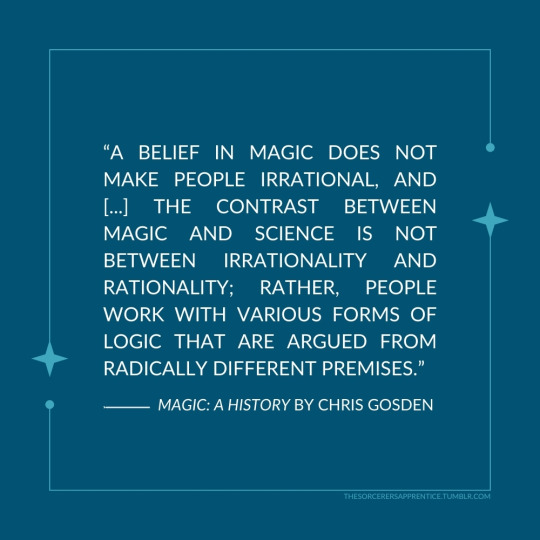
Image Text: “A belief in magic does not make people irrational, and [...] the contrast between magic and science is not between irrationality and rationality; rather, people work with various forms of logic that are argued from radically different premises." - Magic: A History by Chris Gosden.
#science vs magic#magitech#writeblr#writeblr community#writblr#writers of tumblr#writers on tumblr#fantasy#writing community#sci fi#book quote#book quotes#quote#quotes#magic#bookblr#magick#magic system#witchcraft#fantasy worldbuilding#worldbuilding#dark magic#dark academia#religion#studyblr#writing inspiration#writeblr resources#writeblr resource#witches#tarot
17 notes
·
View notes
Note
"Did you know that in the timeline of human history, first came the practice of science, then the practice of magic, THEN the practice of religion?"
No I did not know that. Please say more!
Well, don't quote me word for word but i have this book I've been reading called Magic a history: from alchemy to witchcraft from the ice age to the present
Written by chris gosden, who is a professor of European archeology at Oxford.
I haven't gotten too far, but it starts at the beginning of human history. First, humans began tracking stars and planets, cant remember exactly what it said but it was either something about navigation or astrology, this is the early science we know of
Then, we have evidence of hunter gatherers crafting animals they wanted to hunt out of clay, and then blowing up in a kiln. We believe this is evidence of sympathetic magic, they might have believed blowing up a deer figure may give them the power necessary to hunt down said deer well.
Then, when hunter gatherers began to settle down, place roots, build homes, they eventually built temples and created deities to worship!
Pretty cool right? :)
2 notes
·
View notes
Text
OOC Blog Explainer
21+ semi-experimental rp, not fandom specific*, exploring the notion of spirituality as a mode of relating to existence and what it means to relate to a transcendent being (building off Chris Gosden's definition of religion). It would, then, be more conversational in nature. Overall, I would call it a collaborative, post-modern art project using interaction as the medium and existentialism as the mode.
My Muse is named Báme and is connected to Mercury (as broadly as the symbol can be applied and interpreted) and the Sephiroth of Hod. She is the Goddess of Magick, Analysis, and Communication; although it should be noted She is the personification of symbols rather than Concepts, and therefore open to interpretation. By Her Mercurial nature, obviously there is a question of hermeneutics and consistency. The philosophical implications of this will play out in practice.
This is open to any character, OC or not, as I think a dynamic stance will get the most out of the concept (see footnote below). Likewise, I think it more interesting to see what possibilities lie in stylistic variance than limiting it one way or another; that said, my preference can probably be ascertained by my own (possibly pretentious) writing style. In terms of content, I have mixed feelings, so I'll just say remember there's a fleshy human on the other side - please use your best judgement and avoid being actively hurtful.
The main methods of interaction are asks, acting as 'prayers' (which may or may not be answered), and submissions, acting as 'offerings'. Additionally, people can like this post if they'd like their character to have a 'spiritual experience', ie to receive an ask, that being the Call to Adventure of the scene/scenario/etc. If you're wanting to explore NSFW themes, keep in mind it will be posted publicly if I respond (ie no dms atm and no anon asks).
Footnote
*If we consider divinity as (to put it reductively) the phenominological interaction with a concept (ie the important part of spirituality being the experience, not what lies on the other side of said experience; as Nietzsche put it, "The question of religion is not truth, but does it inspire?", or Joseph Campbell's notion that religion is the "window we draw around Nothing" so we know where to look) we can therefore put this in a modal realist context, ie there is no canon beyond the 'magic circle', as Huizinga might put it, of the activity - although challenging this could be interesting.
1 note
·
View note

